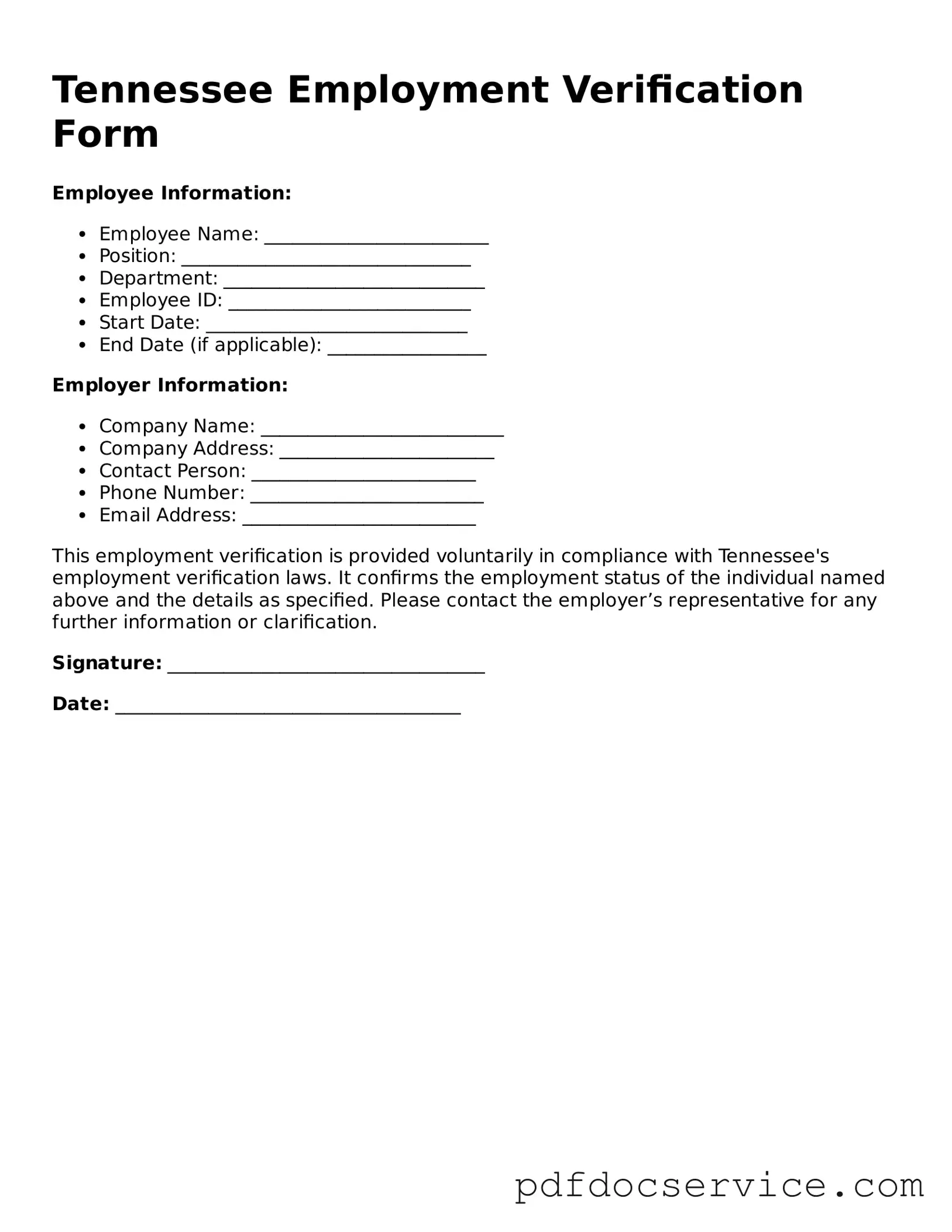Printable Employment Verification Template for Tennessee
The Tennessee Employment Verification form is an essential document used to confirm an employee's job status and income. This form plays a critical role in various situations, such as applying for loans or housing. Understanding how to complete and utilize this form can streamline many employment-related processes.
Open Employment Verification Editor

Printable Employment Verification Template for Tennessee
Open Employment Verification Editor

Open Employment Verification Editor
or
Get Employment Verification PDF
Finish the form now and be done
Finish Employment Verification online using simple edit, save, and download steps.